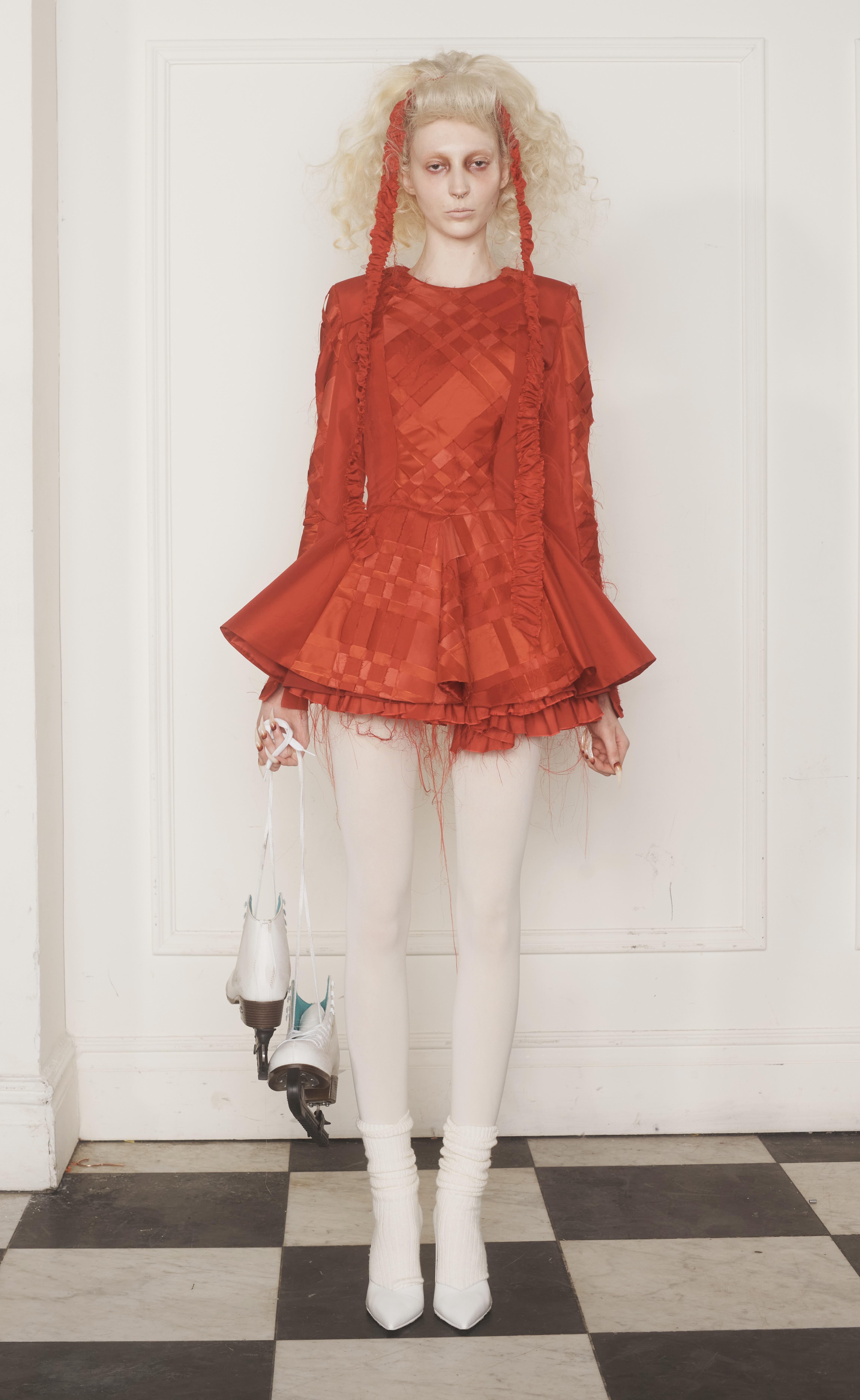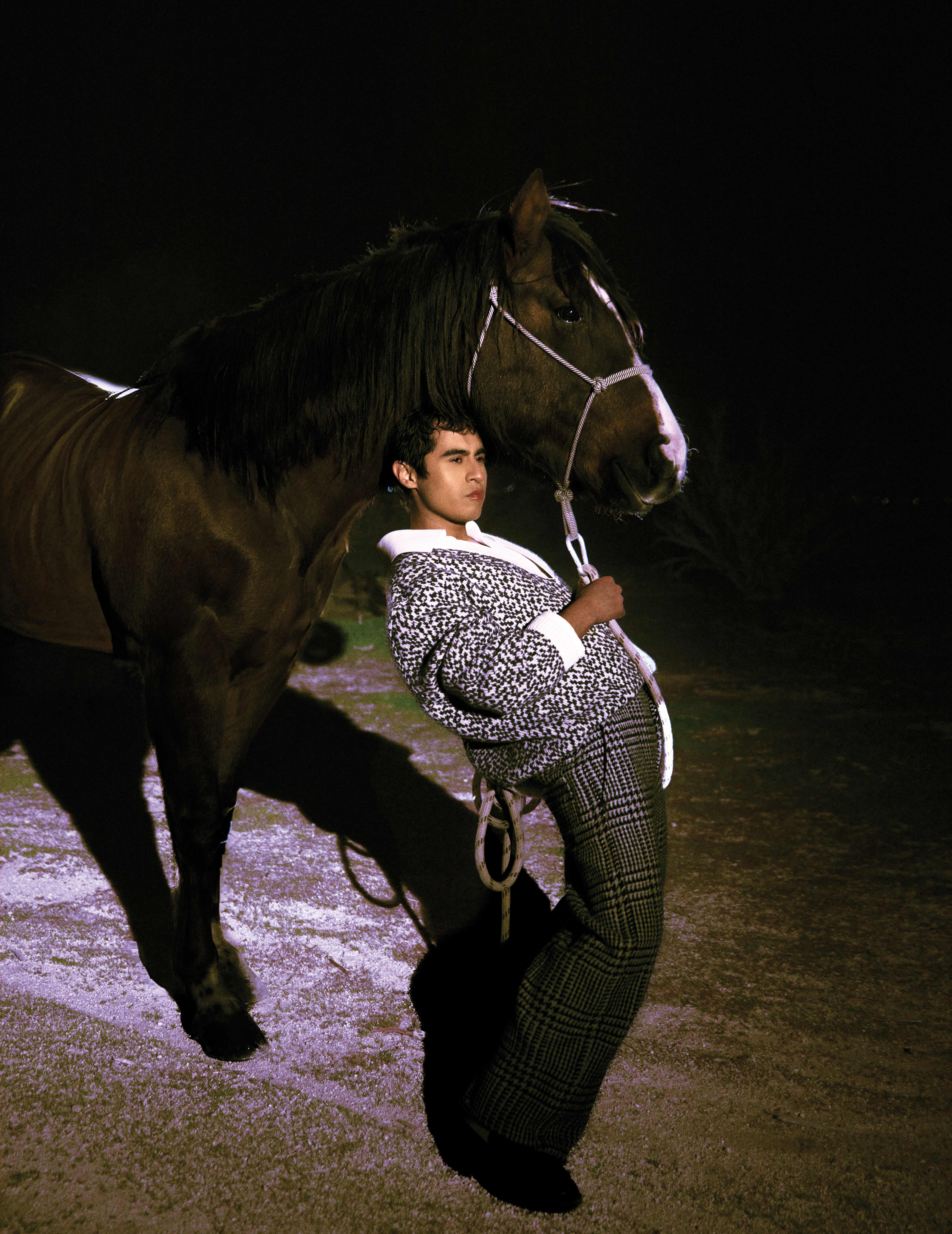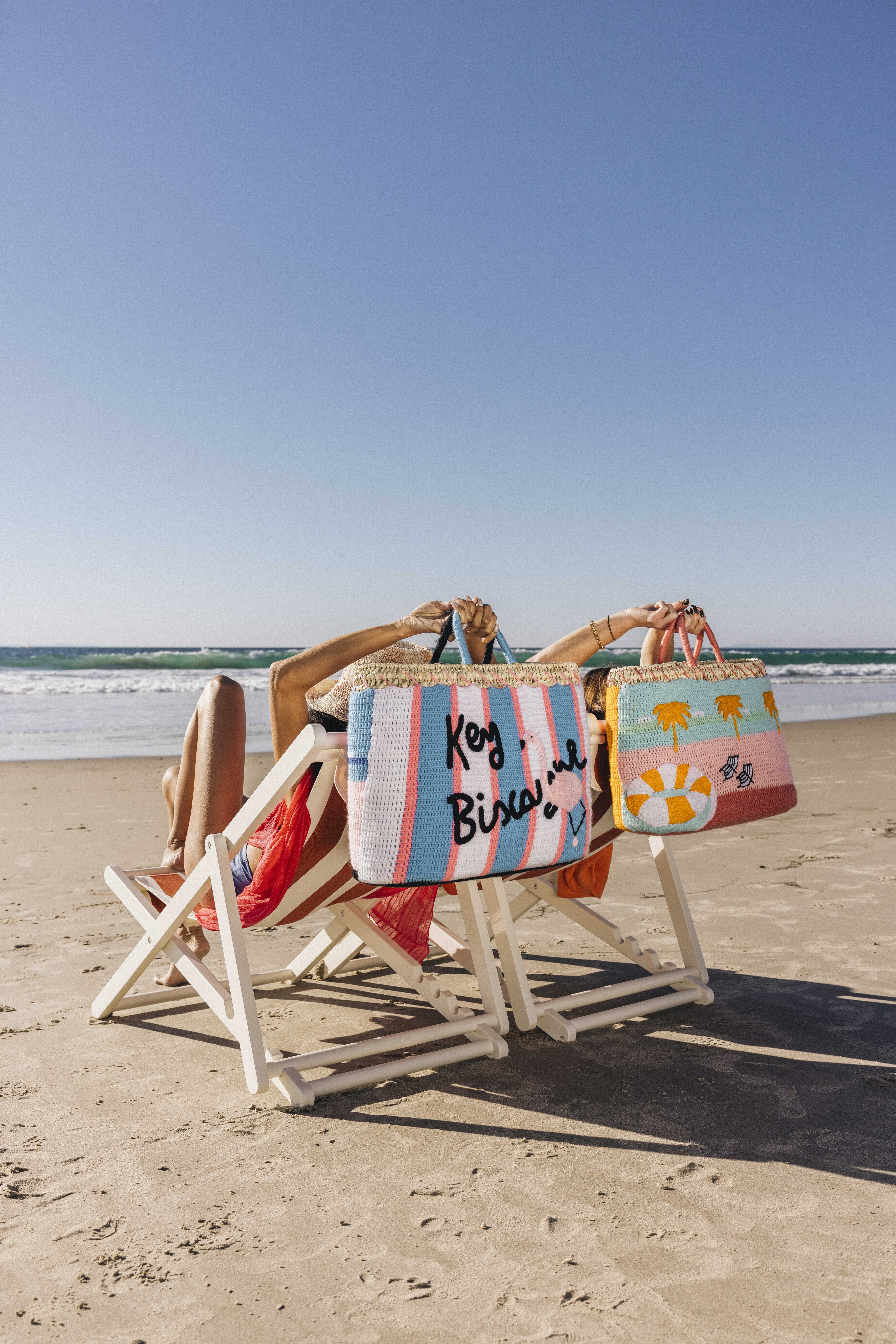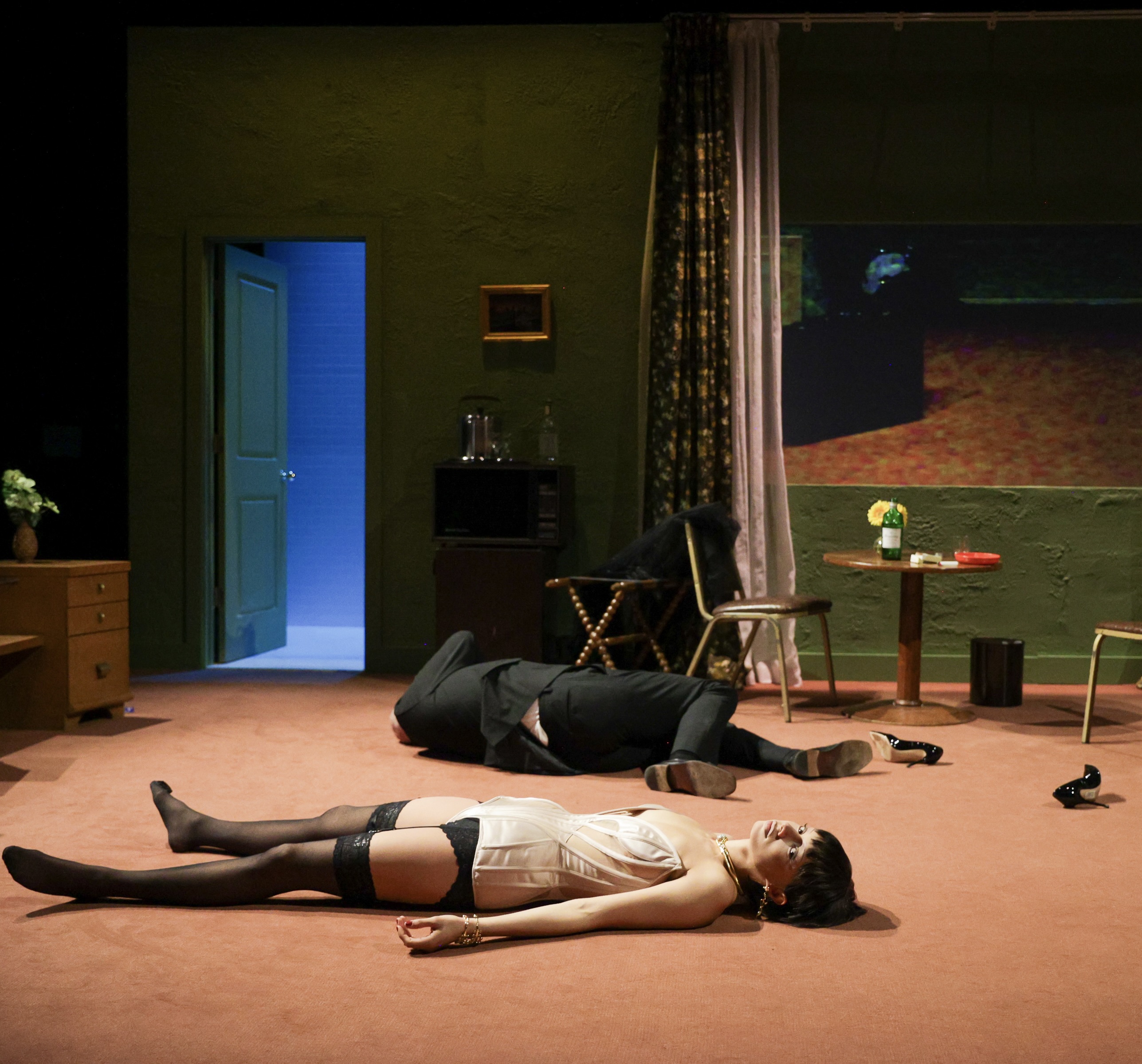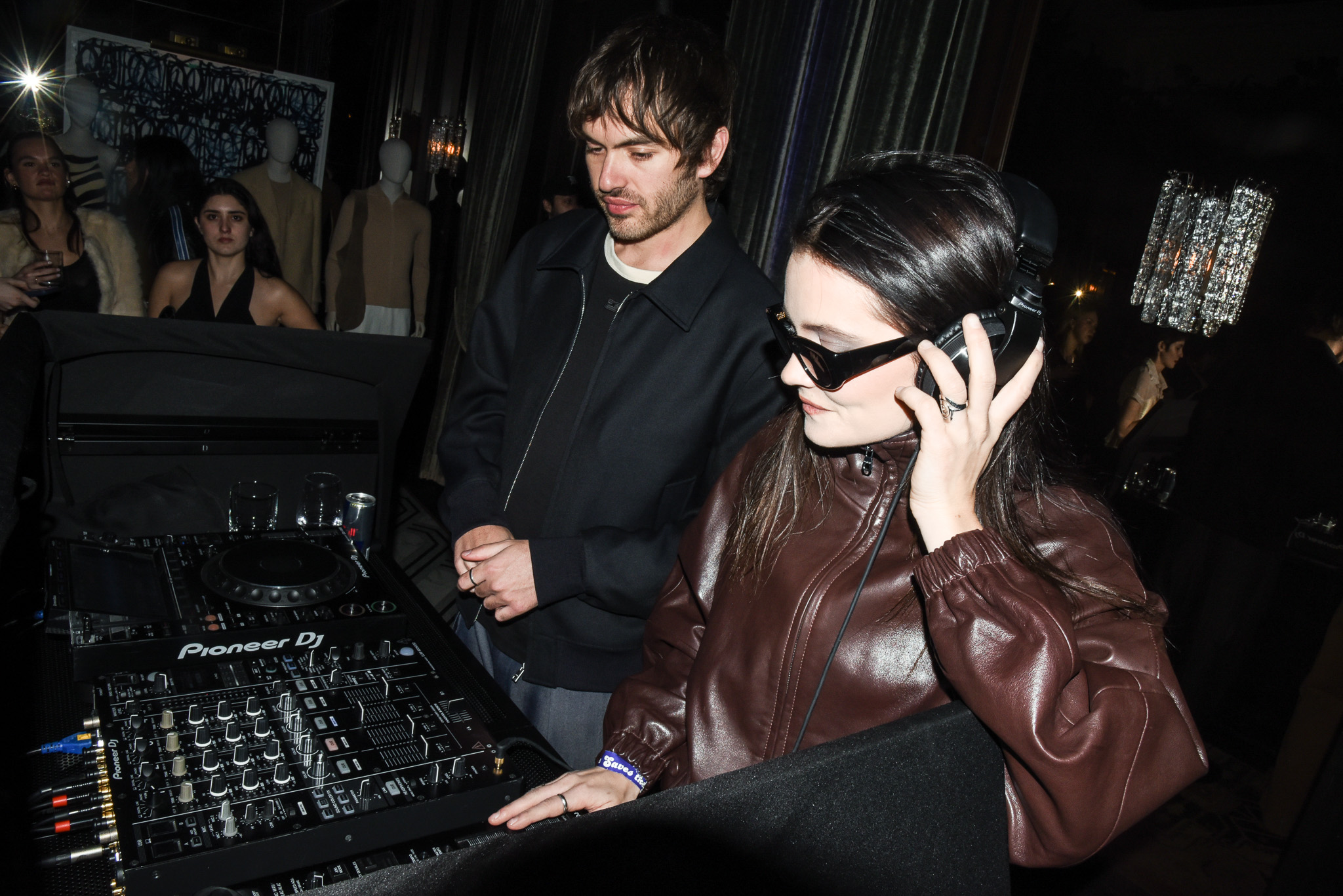

Photographed by Stefan Simchowitz
It’s 9am on a Saturday morning, and skid row, Los Angeles is under the complete control of Shirley Raines. She walks down the streets with Superman socks on and two little red capes flowing in the wind. The scene can be described as a little less than chaos. Volunteers under Raines’ direction try to balance getting homeless people in line while setting up food and supplies. When Raines gives an order, everyone listens.
I immediately notice this magnetic energy that follows her wherever she goes. She effortlessly masters, in her own words, “the madness, the chaos, the attitudes” of Skid Row. In fact, she looks forward to it.
Beauty2TheStreetz is a program that Raines started three years ago as a way to offer beautification, hygiene, and food to homeless people on Skid Row, the sector directly southeast of downtown long seen as the epicenter of the homelessness crisis. The neighborhood is sequestered by invisible borders, which compact a population ranging in the tens of thousands. When Beauty2TheStreetz began, Raines fully funded the program herself; however, let her be the first to say that she is not rich. In fact, after being recently laid off from her job, she’s far from it. Despite this, when asked what reward she gets from coming out here every Saturday morning, she answers without hesitation. “Their smiles and their satisfaction! It’s knowing that people have needs that must be met,” and Raines meets them time and time again.


Photographed by Stefan Simchowitz
Today is unique: it’s the first day that Beauty2TheStreetz has the luxury of bringing food trucks to serve over 600 meals to the homeless. The menu consists of “Wings N’ Waffles” and “Bomb Azz Tacos.” It all looks mouth-wateringly good. Having the food trucks means Raines doesn’t have to cook all the meals herself. Nearby, an intimidating man named Lock flashes a smile in my direction. He wears full biker gear, seemingly immune to the August heat. On the back of his leather jacket reads _Fighters for the World MC_, a motorcycle club that joins forces with Beauty2TheStreetz every Saturday. “Shirley used to do all the cooking in her one-bedroom apartment,” Lock tells me. “It would take up to two days.” The bikers can’t stop thanking the men in the food trucks for their generous donations.
Raines makes multi-tasking look like child’s play. As we’re speaking, she glues on a woman’s false eyelashes. I feel like I’m taking up space, but Raines quickly reassures me that I am exactly where I belong. She has this special gift of making everyone feel at home, which I imagine is a foreign feeling for those who live on Skid Row. What’s most admirable about her is the ways in which she gains the trust of each and every individual that she serves. “Part of what I believe Beauty2theSteetz wants to do is form a bond of consistency,” reflects Raines. “It’s like I always say, you can’t tell your child or your husband that you love them every Saturday. Once
a week is not sufficient enough to build a relationship.” So, Raines shows her face multiple times a week. She makes sure that there’s no feeling of hierarchy in her organization as a reminder that we’re all on the same playing field.


Photographed by Stefan Simchowitz
Unbelievably, Raines’ mission doesn’t operate unscathed. Some, questioning the efficacy of eyelashes or haircuts as remedies to cure homelessness, are quick to criticize what Raines is doing. To combat these remarks, Raines offers a counterpoint. “Do you remember playing dress-up when you were a little girl, and your mom made you stay in the room? You were so bored. So, you put on these crazy ass clothes and did these crazy things, and you were still in the room. But you _felt_ like you were someplace else.” That’s what Beauty2TheStreetz is about. “It’s just a grownup game of make believe to take them away from their circumstances, if only for a minute.”
Though it may not be obvious to some people, the beautification and humanization of homeless people go hand in hand. “They may be homeless and live in a tent, but they don’t want to be dirty,” asserts Raines. “They don’t want to be unkempt with their hair. They just don’t have any options.” Residents of Skid Row are constantly ostracized from their greater community because we forget that this could easily be one of us. “A lot of these homeless people have worked, or they’re vets, or they have unemployment, or they have social security money. They are entitled to getting help. They’re not getting handouts. They’re getting back what they put into our society.” If a shower and a haircut will make us see homeless people as equal members of society, then what Beauty2TheStreetz is accomplishing can only be seen as an act of nobility.


Photographed by Stefan Simchowitz
When asked what the hardest part of coming out here bright and early every Saturday is, Raines can’t recall a single one. “There’s some real tough shit that can happen. I buried one of my children—that’s tough. But dealing with the homeless, dealing with the attitudes, dealing with people who have less than you is not tough.” Though she was never homeless herself, Raines doesn’t believe that’s a qualifier to empathize with their plight. “I have a connection and correlation with brokenness, not so much homelessness. A lot of people are on the street, broken.” While times in Skid Row are undoubtedly harrowing, and the specter of the housing and affordability crisis becomes crystal clear with each passing day, figures like Shirley Raines, and her weekly missions to one of the country’s most infamous neighborhoods, are indispensable fixtures that demonstrate our capability of lending a hand.
 
Photographed by Stefan Simchowitz
It’s 9am on a Saturday morning, and skid row, Los Angeles is under the complete control of Shirley Raines. She walks down the streets with Superman socks on and two little red capes flowing in the wind. The scene can be described as a little less than chaos. Volunteers under Raines’ direction try to balance getting homeless people in line while setting up food and supplies. When Raines gives an order, everyone listens.
I immediately notice this magnetic energy that follows her wherever she goes. She effortlessly masters, in her own words, “the madness, the chaos, the attitudes” of Skid Row. In fact, she looks forward to it.
Beauty2TheStreetz is a program that Raines started three years ago as a way to offer beautification, hygiene, and food to homeless people on Skid Row, the sector directly southeast of downtown long seen as the epicenter of the homelessness crisis. The neighborhood is sequestered by invisible borders, which compact a population ranging in the tens of thousands. When Beauty2TheStreetz began, Raines fully funded the program herself; however, let her be the first to say that she is not rich. In fact, after being recently laid off from her job, she’s far from it. Despite this, when asked what reward she gets from coming out here every Saturday morning, she answers without hesitation. “Their smiles and their satisfaction! It’s knowing that people have needs that must be met,” and Raines meets them time and time again.

Photographed by Stefan Simchowitz
It’s 9am on a Saturday morning, and skid row, Los Angeles is under the complete control of Shirley Raines. She walks down the streets with Superman socks on and two little red capes flowing in the wind. The scene can be described as a little less than chaos. Volunteers under Raines’ direction try to balance getting homeless people in line while setting up food and supplies. When Raines gives an order, everyone listens.
I immediately notice this magnetic energy that follows her wherever she goes. She effortlessly masters, in her own words, “the madness, the chaos, the attitudes” of Skid Row. In fact, she looks forward to it.
Beauty2TheStreetz is a program that Raines started three years ago as a way to offer beautification, hygiene, and food to homeless people on Skid Row, the sector directly southeast of downtown long seen as the epicenter of the homelessness crisis. The neighborhood is sequestered by invisible borders, which compact a population ranging in the tens of thousands. When Beauty2TheStreetz began, Raines fully funded the program herself; however, let her be the first to say that she is not rich. In fact, after being recently laid off from her job, she’s far from it. Despite this, when asked what reward she gets from coming out here every Saturday morning, she answers without hesitation. “Their smiles and their satisfaction! It’s knowing that people have needs that must be met,” and Raines meets them time and time again.
 
Photographed by Stefan Simchowitz
Today is unique: it’s the first day that Beauty2TheStreetz has the luxury of bringing food trucks to serve over 600 meals to the homeless. The menu consists of “Wings N’ Waffles” and “Bomb Azz Tacos.” It all looks mouth-wateringly good. Having the food trucks means Raines doesn’t have to cook all the meals herself. Nearby, an intimidating man named Lock flashes a smile in my direction. He wears full biker gear, seemingly immune to the August heat. On the back of his leather jacket reads _Fighters for the World MC_, a motorcycle club that joins forces with Beauty2TheStreetz every Saturday. “Shirley used to do all the cooking in her one-bedroom apartment,” Lock tells me. “It would take up to two days.” The bikers can’t stop thanking the men in the food trucks for their generous donations.
Raines makes multi-tasking look like child’s play. As we’re speaking, she glues on a woman’s false eyelashes. I feel like I’m taking up space, but Raines quickly reassures me that I am exactly where I belong. She has this special gift of making everyone feel at home, which I imagine is a foreign feeling for those who live on Skid Row. What’s most admirable about her is the ways in which she gains the trust of each and every individual that she serves. “Part of what I believe Beauty2theSteetz wants to do is form a bond of consistency,” reflects Raines. “It’s like I always say, you can’t tell your child or your husband that you love them every Saturday. Once
a week is not sufficient enough to build a relationship.” So, Raines shows her face multiple times a week. She makes sure that there’s no feeling of hierarchy in her organization as a reminder that we’re all on the same playing field.

Photographed by Stefan Simchowitz
Today is unique: it’s the first day that Beauty2TheStreetz has the luxury of bringing food trucks to serve over 600 meals to the homeless. The menu consists of “Wings N’ Waffles” and “Bomb Azz Tacos.” It all looks mouth-wateringly good. Having the food trucks means Raines doesn’t have to cook all the meals herself. Nearby, an intimidating man named Lock flashes a smile in my direction. He wears full biker gear, seemingly immune to the August heat. On the back of his leather jacket reads _Fighters for the World MC_, a motorcycle club that joins forces with Beauty2TheStreetz every Saturday. “Shirley used to do all the cooking in her one-bedroom apartment,” Lock tells me. “It would take up to two days.” The bikers can’t stop thanking the men in the food trucks for their generous donations.
Raines makes multi-tasking look like child’s play. As we’re speaking, she glues on a woman’s false eyelashes. I feel like I’m taking up space, but Raines quickly reassures me that I am exactly where I belong. She has this special gift of making everyone feel at home, which I imagine is a foreign feeling for those who live on Skid Row. What’s most admirable about her is the ways in which she gains the trust of each and every individual that she serves. “Part of what I believe Beauty2theSteetz wants to do is form a bond of consistency,” reflects Raines. “It’s like I always say, you can’t tell your child or your husband that you love them every Saturday. Once
a week is not sufficient enough to build a relationship.” So, Raines shows her face multiple times a week. She makes sure that there’s no feeling of hierarchy in her organization as a reminder that we’re all on the same playing field.
 
Photographed by Stefan Simchowitz
Unbelievably, Raines’ mission doesn’t operate unscathed. Some, questioning the efficacy of eyelashes or haircuts as remedies to cure homelessness, are quick to criticize what Raines is doing. To combat these remarks, Raines offers a counterpoint. “Do you remember playing dress-up when you were a little girl, and your mom made you stay in the room? You were so bored. So, you put on these crazy ass clothes and did these crazy things, and you were still in the room. But you _felt_ like you were someplace else.” That’s what Beauty2TheStreetz is about. “It’s just a grownup game of make believe to take them away from their circumstances, if only for a minute.”
Though it may not be obvious to some people, the beautification and humanization of homeless people go hand in hand. “They may be homeless and live in a tent, but they don’t want to be dirty,” asserts Raines. “They don’t want to be unkempt with their hair. They just don’t have any options.” Residents of Skid Row are constantly ostracized from their greater community because we forget that this could easily be one of us. “A lot of these homeless people have worked, or they’re vets, or they have unemployment, or they have social security money. They are entitled to getting help. They’re not getting handouts. They’re getting back what they put into our society.” If a shower and a haircut will make us see homeless people as equal members of society, then what Beauty2TheStreetz is accomplishing can only be seen as an act of nobility.

Photographed by Stefan Simchowitz
Unbelievably, Raines’ mission doesn’t operate unscathed. Some, questioning the efficacy of eyelashes or haircuts as remedies to cure homelessness, are quick to criticize what Raines is doing. To combat these remarks, Raines offers a counterpoint. “Do you remember playing dress-up when you were a little girl, and your mom made you stay in the room? You were so bored. So, you put on these crazy ass clothes and did these crazy things, and you were still in the room. But you _felt_ like you were someplace else.” That’s what Beauty2TheStreetz is about. “It’s just a grownup game of make believe to take them away from their circumstances, if only for a minute.”
Though it may not be obvious to some people, the beautification and humanization of homeless people go hand in hand. “They may be homeless and live in a tent, but they don’t want to be dirty,” asserts Raines. “They don’t want to be unkempt with their hair. They just don’t have any options.” Residents of Skid Row are constantly ostracized from their greater community because we forget that this could easily be one of us. “A lot of these homeless people have worked, or they’re vets, or they have unemployment, or they have social security money. They are entitled to getting help. They’re not getting handouts. They’re getting back what they put into our society.” If a shower and a haircut will make us see homeless people as equal members of society, then what Beauty2TheStreetz is accomplishing can only be seen as an act of nobility.
 
Photographed by Stefan Simchowitz
When asked what the hardest part of coming out here bright and early every Saturday is, Raines can’t recall a single one. “There’s some real tough shit that can happen. I buried one of my children—that’s tough. But dealing with the homeless, dealing with the attitudes, dealing with people who have less than you is not tough.” Though she was never homeless herself, Raines doesn’t believe that’s a qualifier to empathize with their plight. “I have a connection and correlation with brokenness, not so much homelessness. A lot of people are on the street, broken.” While times in Skid Row are undoubtedly harrowing, and the specter of the housing and affordability crisis becomes crystal clear with each passing day, figures like Shirley Raines, and her weekly missions to one of the country’s most infamous neighborhoods, are indispensable fixtures that demonstrate our capability of lending a hand.

Photographed by Stefan Simchowitz
When asked what the hardest part of coming out here bright and early every Saturday is, Raines can’t recall a single one. “There’s some real tough shit that can happen. I buried one of my children—that’s tough. But dealing with the homeless, dealing with the attitudes, dealing with people who have less than you is not tough.” Though she was never homeless herself, Raines doesn’t believe that’s a qualifier to empathize with their plight. “I have a connection and correlation with brokenness, not so much homelessness. A lot of people are on the street, broken.” While times in Skid Row are undoubtedly harrowing, and the specter of the housing and affordability crisis becomes crystal clear with each passing day, figures like Shirley Raines, and her weekly missions to one of the country’s most infamous neighborhoods, are indispensable fixtures that demonstrate our capability of lending a hand.





.jpg)
